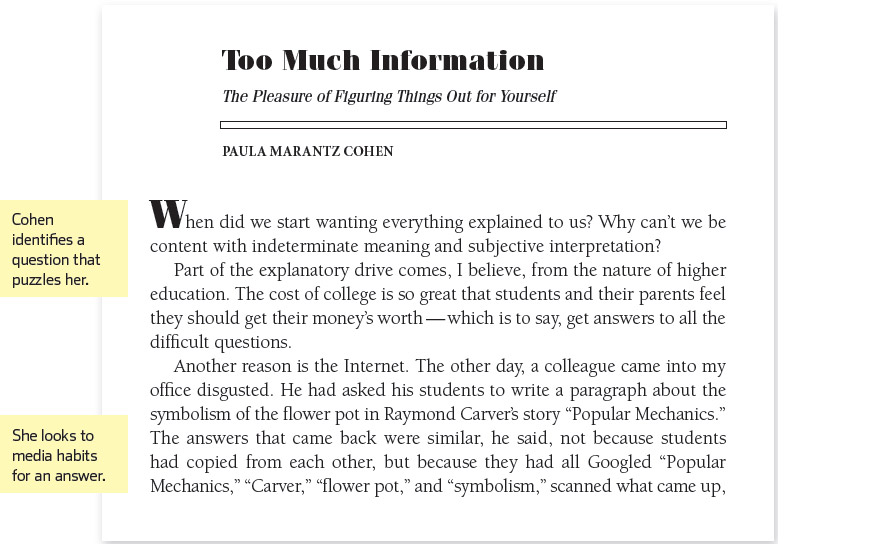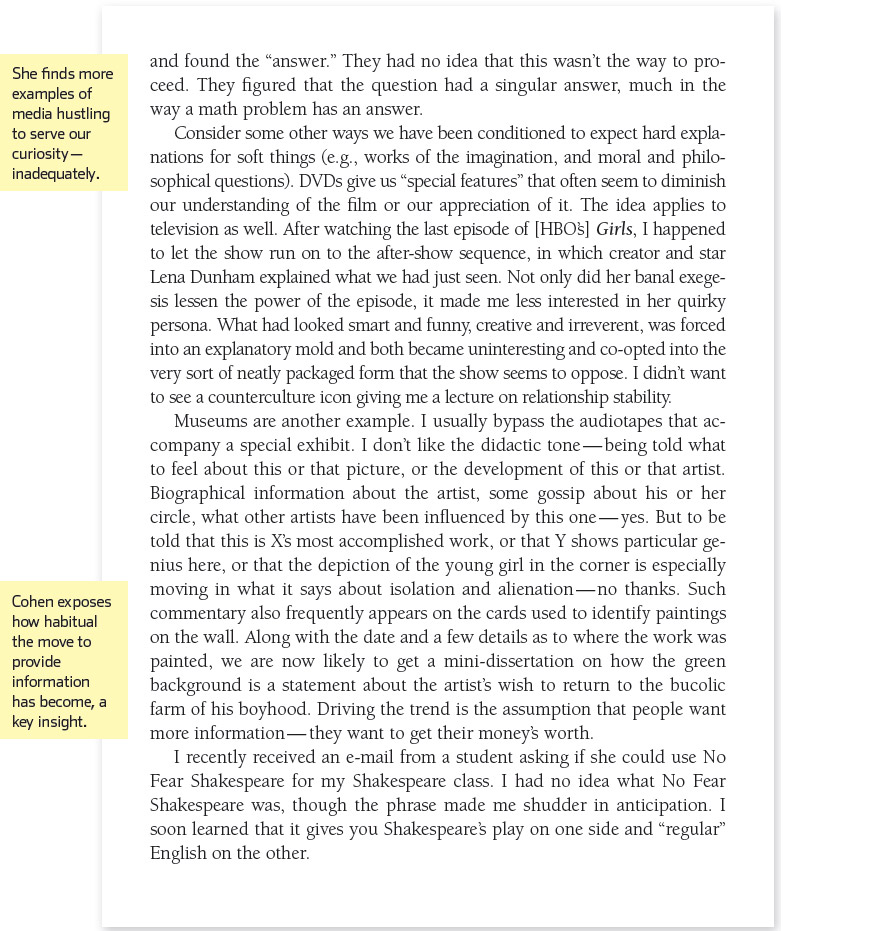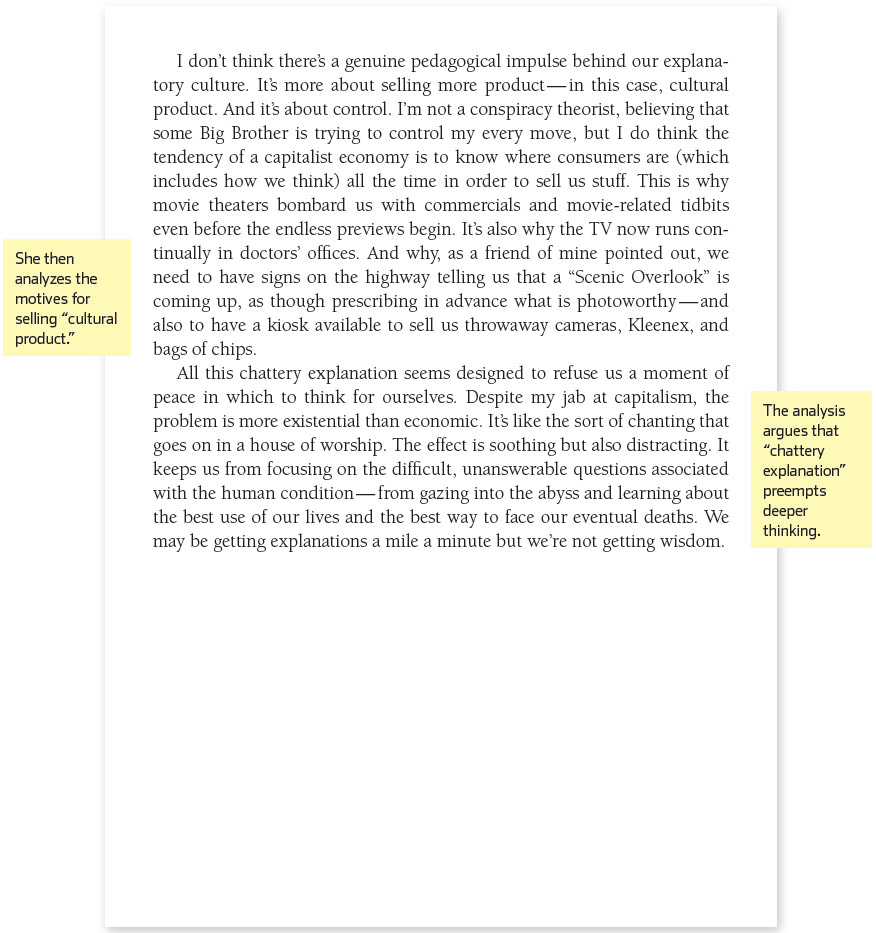Rhetorical Analysis
Rhetorical Analysis
In “Too Much Information,” an essay originally published in The American Scholar (June 18, 2013), Professor Paula Marantz Cohen of Drexel University examines what happens to us as a result of living in a society that insists on answering, indeed anticipating, all the questions we might have in our daily lives. Her article is a rhetorical analysis because it demonstrates how modes of communication shape — and then sometimes diminish — our capacity to think. But Cohen also explores why we now demand immediate answers to complex questions — which is why you will find a selection from this piece quoted in the chapter on causal analyses.
Reading the Genre
The title and subtitle of Cohen’s essay likely start you thinking about the problem she identifies. Is information overload an issue you have encountered yourself? After reading the piece, consider whether you find Cohen’s discussion convincing. Do your own experiences tend to confirm her thesis, or might you be inclined to challenge it — perhaps from a generational point of view?


